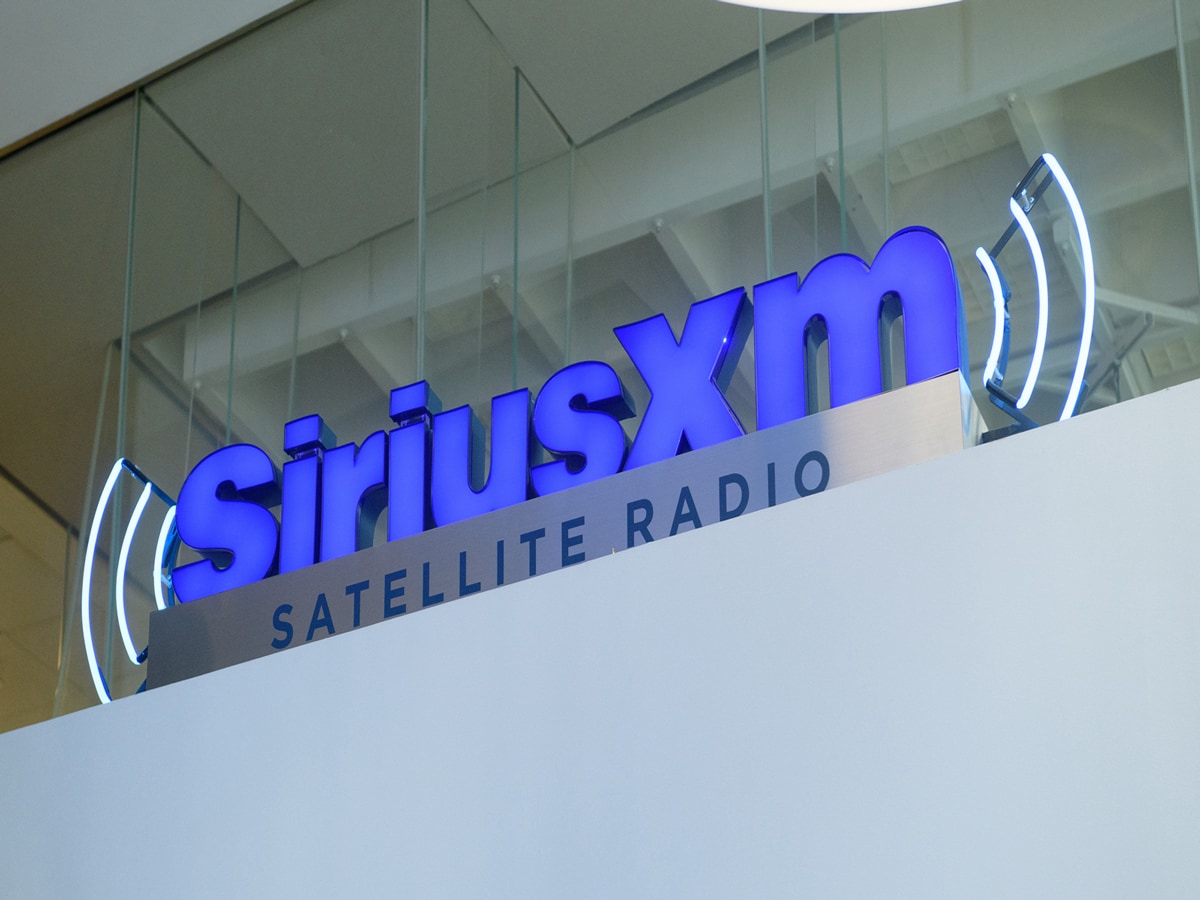SiriusXM [SIRI] is a US-based provider of satellite radio and streaming services. In early September, the company’s stock merged with parent Liberty Media’s SiriusXM tracking stock group, both of which now trade under the SIRI ticker.
This stock spotlight will discuss what the merger and the corporate restructuring means for the business, but also highlight any near-term headwinds associated with its subscription numbers.
SiriusXM has been identified as a leader in the podcasting market, alongside Amazon [AMZN] and Spotify [SPOT]. According to a report published by Global Market Insights in July, the market was worth $27bn in 2023 and could grow at a CAGR of 15% between 2024 and 2032, to a valuation of $100bn.
Merger Designed to Create Shareholder Value
The deal to merge SiriusXM Holdings with Liberty SiriusXM Holdings, previously trading under the ticker LSXM, was designed to simplify the different stock classes and combine their tickers to create a single stock with higher liquidity. LSXM shareholders own approximately 81% of SIRI, while SiriusXM shareholders own the rest.
Despite the confusing deal structure, SiriusXM CEO Jennifer Witz said in December that the combination will enable the company “to enter its next phase of value creation”. She explained that the audio entertainment industry is “highly fragmented”, but SiriusXM is “poised for continued success” thanks to its focus on creating “high-quality, premium, human-curated radio that is more relevant than ever”.
Warren Buffett has clearly seen something he likes.
The Sage of Omaha now owns 32.52% after buying 3.6 million shares for approximately $87m in the week of September 16, according to a filing with the SEC earlier this month.
His firm, Berkshire Hathaway [BRK-B], first took a position in the stock back in Q4 2016 and started buying into several Liberty Media tracking stocks in Q1 of this year, possibly as an arbitrage play following the merger announcement.
Buffett Stake Boosts SIRI Stock
News of Buffett’s stake saw SIRI stock trending upward when the market opened at the beginning of last week. The SiriusXM share price is up 18.65% in the past month through October 18, though down 48.78% since the start of 2024 and down 40.30% in the past year.
Subscriber Growth Woes
SIRI stock’s underperformance this year could be down to concerns about revenue growth and stagnating subscription numbers.
Revenue fell 3% year-over-year to $2.18bn in Q2 2024, while the company also lost approximately 100,000 satellite radio subscribers, although the subscription base still tops 33 million. Separately, its streaming service Pandora lost 41,000 subscribers and ended the quarter with six million in total.
In better news, net income for the three months to the end of June rose to $316m from $310m a year ago. Adjusted EBITDA was $702m, flat year-over-year but up 8% compared to Q1. This improvement was driven by a considerable reduction in acquisition costs, design and development overheads and administrative expenses.
“Our strategic investments in technology and automation continue to reduce costs, improve the efficiency of our teams and enhance the customer experience,” said SiriusXM CFO Tom Barry in the Q2 earnings release.
For comparison, Spotify reported a 12% year-over-year rise in subscribers in Q2 to 246 million. Here is how SIRI stock’s fundamentals stack up against Spotify’s and those of fellow radio stock iHeartMedia [IHRT].
| SIRI | SPOT | IHRT |
Market Cap | $9.36bn | $76.08bn | $283.89m |
P/S Ratio | 1.20 | 4.83 | 0.08 |
Estimated Sales Growth (Current Fiscal Year) | -2.30% | 21.00% | 4.50% |
Estimated Sales Growth (Next Fiscal Year) | 0.90% | 14.90% | -1.50% |
Source: Yahoo Finance
While SIRI stock’s P/S ratio suggests it is fairly cheap, forecasted revenue growth this year and next is lackluster. On the other hand, SPOT stock seems more attractively priced given its fundamentals, especially when you also factor in its superior subscriber growth.
SIRI Stock: The Investment Case
The Bull Case for SiriusXM
SiriusXM is betting big on exclusive podcast content in a bid to attract new listeners. In August, the company inked a multi-year deal to acquire one of Spotify’s biggest podcasts, Call Her Daddy, for a reported $125m. Back in January, it poached the SmartLess podcast, hosted by actors Will Arnett, Jason Bateman and Sean Hayes, from Amazon for more than $100m.
The fact that Buffett has upped his stake in SIRI stock could be interpreted as a sign that he believes the company’s business model can deliver long-term value for shareholders — especially when you consider he exited his Paramount [PARA] position in Q1 amid the home entertainment giant’s mounting losses.
The Bear Case for SiriusXM
The question is whether SiriusXM’s podcast content offering push can actually stem the subscriber losses and help it return to growth.
In August, premium podcast subscription service SiriusXM Podcasts+ was launched within Apple’s [AAPL] podcast app for $5.99 per month, or $44.99 annually. If the podcast content on offer fails to convince people to sign up, then the deals the company has been inking could potentially turn out to be expensive ones.
Earlier this month, JPMorgan analyst Sebastiano Petti reopened his coverage of SIRI stock with an ‘underweight’ rating. He cited concerns around long-term growth and the company’s ability to capture a broader demographic, reported CNBC.
Conclusion
Buffett throwing his weight behind SiriusXM could give SIRI stock a boost in the near term, but questions remain about the company’s podcast content strategy. The deal to acquire Call Her Daddy is a potential boon, but the jury is out over whether it can encourage a broader demographic to sign up to its subscription service.
Disclaimer Past performance is not a reliable indicator of future results.
CMC Markets is an execution-only service provider. The material (whether or not it states any opinions) is for general information purposes only, and does not take into account your personal circumstances or objectives. Nothing in this material is (or should be considered to be) financial, investment or other advice on which reliance should be placed. No opinion given in the material constitutes a recommendation by CMC Markets or the author that any particular investment, security, transaction or investment strategy is suitable for any specific person.
The material has not been prepared in accordance with legal requirements designed to promote the independence of investment research. Although we are not specifically prevented from dealing before providing this material, we do not seek to take advantage of the material prior to its dissemination.
CMC Markets does not endorse or offer opinion on the trading strategies used by the author. Their trading strategies do not guarantee any return and CMC Markets shall not be held responsible for any loss that you may incur, either directly or indirectly, arising from any investment based on any information contained herein.
*Tax treatment depends on individual circumstances and can change or may differ in a jurisdiction other than the UK.
Continue reading for FREE
- Includes free newsletter updates, unsubscribe anytime. Privacy policy





